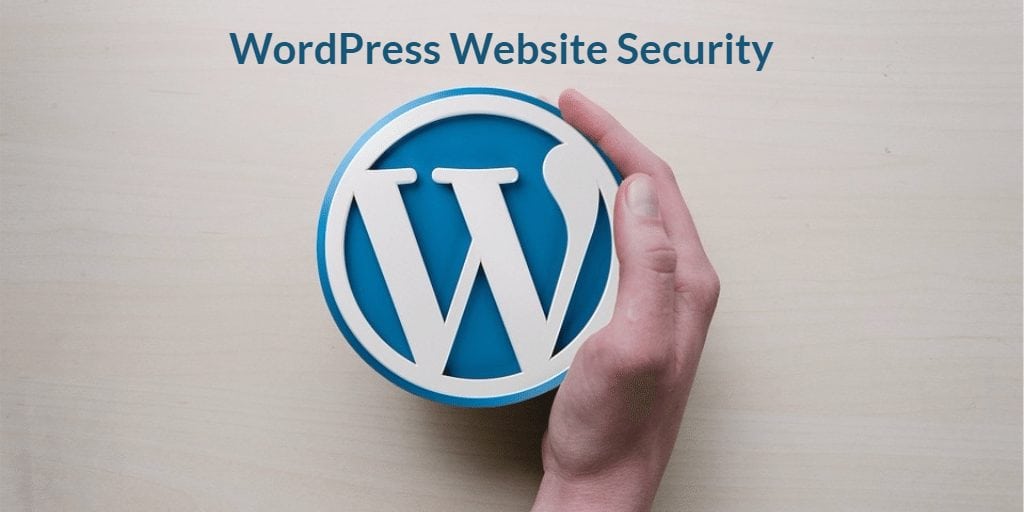Introduction:
Welcome to our blog, where we delve into the critical topic of WordPress security. In this comprehensive guide, we will explore various techniques, best practices, and essential tools to help you safeguard your WordPress website from potential threats. By implementing these security measures, you can protect your site, maintain the trust of your visitors, and ensure smooth operations. Let’s get started!
Website security is of paramount importance due to several compelling reasons:
- Protection against Malicious Attacks: Cyberattacks, such as hacking attempts, malware injections, and data breaches, are prevalent on the internet. A secure website mitigates the risk of unauthorized access, data theft, and manipulation by malicious actors, safeguarding sensitive information and preserving the integrity of your online presence.
- Maintaining User Trust: A secure website fosters trust and confidence among visitors. When users feel their personal information is safe and their online interactions are secure, they are more likely to engage with your website, make transactions, and share sensitive data. By prioritizing website security, you demonstrate a commitment to protecting your users’ privacy and fostering a secure environment for their online activities.
- Reputation Management: A security breach can severely damage your website’s reputation and credibility. If your website becomes compromised, it may be used for illegal activities, spam distribution, or phishing attempts, tarnishing your brand’s image and potentially leading to blacklisting by search engines and security software. Investing in website security helps maintain a positive reputation and preserves the trust of your audience.
- Compliance with Data Protection Regulations: Depending on your website’s nature and the location of your target audience, you may be subject to various data protection regulations, such as the General Data Protection Regulation (GDPR) in the European Union. Non-compliance with these regulations can result in significant legal consequences, including fines and legal actions. Implementing proper security measures ensures compliance with relevant regulations and helps protect user data.
- Business Continuity and Productivity: A compromised website can experience downtime, loss of functionality, or even complete loss of data. These disruptions can impact your business operations, customer service, and revenue generation. By maintaining a secure website, you reduce the risk of disruptions and ensure business continuity, enabling you to focus on growth and productivity.
- Search Engine Optimization (SEO) Benefits: Search engines prioritize secure websites in their ranking algorithms. Having proper security measures in place, such as SSL certificates and protection against malware, improves your website’s SEO performance and visibility in search engine results, driving organic traffic and improving your online presence.
How can we achieve the goal of secure wordpress website
- Importance of WordPress Security: In this section, we discuss the significance of prioritizing security for your WordPress site. We highlight the potential risks, such as hacking attempts, malware infections, and data breaches, which can result in damaged reputation, loss of sensitive information, and disruption to your online presence.
- Updating WordPress Core, Themes, and Plugins: Regularly updating your WordPress core, themes, and plugins is vital for maintaining a secure website. We explain why these updates are crucial, the potential risks of neglecting them, and provide step-by-step instructions on how to keep your WordPress installation up to date.
- Choosing Reliable Themes and Plugins: The choice of themes and plugins significantly impacts your site’s security. We guide you through the process of selecting reputable themes and plugins from trustworthy sources, checking for regular updates, reading reviews, and conducting due diligence to avoid potentially malicious code.
- Implementing Strong User Authentication: We discuss the importance of using strong and unique usernames and passwords for your WordPress admin accounts. Additionally, we explore two-factor authentication (2FA) and recommend popular plugins that offer enhanced authentication methods to protect against unauthorized access.
- Securing Your WordPress Database: The WordPress database contains critical information about your website. We provide tips and techniques to secure your database, including changing the database prefix, limiting database access privileges, and using security plugins to detect and prevent SQL injections.
- Protecting Against Malware and Brute Force Attacks: Malware and brute force attacks are common threats to WordPress sites. We outline measures to defend against these attacks, such as installing security plugins, configuring firewalls, enabling file change monitoring, and implementing CAPTCHA to prevent automated login attempts.
- Configuring WordPress Security Plugins: We highlight popular security plugins and guide you through the process of installing and configuring them to enhance your site’s security. We cover features such as malware scanning, file integrity monitoring, login protection, and firewall settings.
- Regular Backups and Disaster Recovery: Creating regular backups of your WordPress site is crucial for disaster recovery in case of security breaches or technical failures. We explain various backup options, recommend reliable backup plugins, and provide guidelines for creating automated backup schedules.
- Monitoring and Responding to Security Threats: Staying vigilant and proactively monitoring your site for security threats is essential. We discuss the importance of monitoring log files, using security audit plugins, and setting up email notifications for suspicious activities. We also outline steps to take if you suspect a security breach.
- Educating Users and Admins: The human element plays a crucial role in website security. We emphasize the importance of educating all users and administrators about safe browsing habits, recognizing phishing attempts, and following best practices to prevent security incidents.
Certainly! Here is a list of popular security plugins for WordPress:
- Wordfence Security: Wordfence is a comprehensive security plugin that offers features like firewall protection, malware scanning, login security, and monitoring. It also includes a real-time threat defense feed to keep your site protected.
- Sucuri Security: Sucuri Security is a trusted security plugin that provides features such as security activity auditing, file integrity monitoring, malware scanning, blacklist monitoring, and website firewall protection.
- iThemes Security: Formerly known as Better WP Security, iThemes Security offers a range of security features such as brute force protection, two-factor authentication, file change detection, database backups, and strong password enforcement.
- All In One WP Security & Firewall: This plugin provides a user-friendly interface and offers features like firewall protection, login security, file integrity checking, database security, and spam protection.
- BulletProof Security: BulletProof Security is known for its robust protection against various types of attacks. It includes features like firewall protection, malware scanning, login security, database backup, and anti-spam measures.
- Shield Security: Shield Security provides protection against brute force attacks, malware scanning, two-factor authentication, firewall protection, and various other security features.
- SecuPress: SecuPress is a user-friendly security plugin that offers features such as malware scanning, firewall protection, login security, and activity log monitoring.
- Cerber Security: Cerber Security provides protection against brute force attacks, spam, malware scanning, and file integrity checking. It also includes a notification system to keep you informed of security events.
- Security Ninja: Security Ninja is a security plugin that focuses on vulnerability scanning, malware scanning, and site hardening. It also provides recommendations for improving your site’s security.
- MalCare Security: MalCare is a comprehensive security plugin that offers features like malware scanning, firewall protection, login security, and website management tools.
Conclusion:
In this blog post, we have covered a wide range of strategies and practices to enhance the security of your WordPress website. By implementing these measures, you can significantly reduce the risk of security breaches, protect your data and your visitors, and maintain a secure online presence. Remember, WordPress security is an ongoing effort, so stay informed, stay updated, and remain vigilant.
Also Read click here

